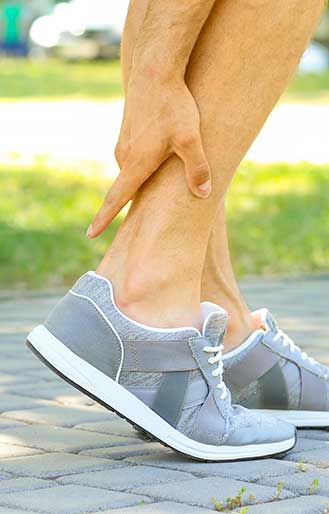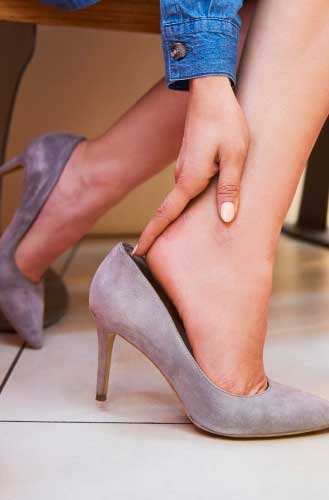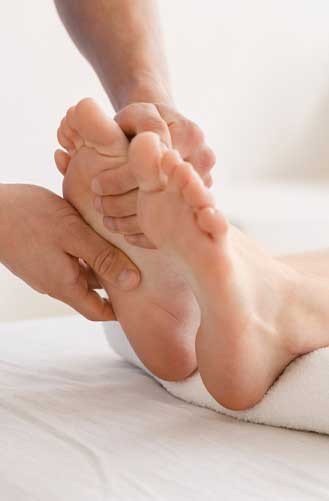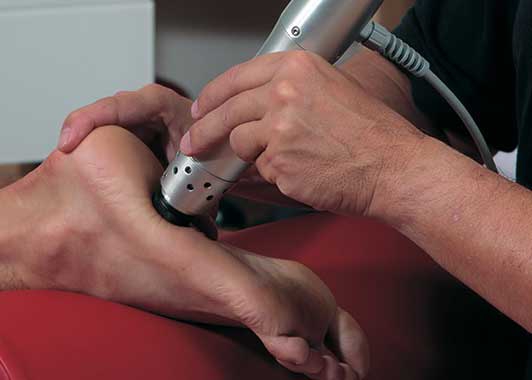From persistent heel pain to neuropathy, our personalized approach ensures you receive the care you need to alleviate discomfort and prevent future complications. Let Trinity Foot Center assist you in overcoming foot pain so you can enjoy your favorite activities without limitations.
 Comprehensive Foot and Ankle Care
Comprehensive Foot and Ankle Care
At Trinity Foot Center, we can diagnose and treat various foot and ankle conditions. Whether you’re dealing with common issues like plantar fasciitis or nail fungus, or more complex conditions such as neuropathy, our experienced Dallas podiatrist, Dr. Lisa Brandy, is here to provide personalized care tailored to your needs.
 Heel Pain Treatment
Heel Pain Treatment
Struggling with persistent heel pain that’s impacting your daily life? Don’t let it hold you back from the activities you love. Dr. Lisa Brandy at Trinity Foot Center provides exceptional, personalized care aimed at uncovering and treating the root cause of your pain. With her expertise, you can get back to enjoying a vibrant, active lifestyle.
 Treatment for Diabetic Neuropathy
Treatment for Diabetic Neuropathy
Struggling with diabetic neuropathy? This challenging condition can turn daily activities into painful struggles, but there’s hope at Trinity Foot Center in DeSoto. Dr. Lisa Brandy is here to help you not just manage symptoms but truly improve your quality of life. Our goal is to enhance your overall well-being and help you regain comfort and joy in your daily life.
 MLS Laser Therapy
MLS Laser Therapy
MLS laser therapy can address common issues like plantar fasciitis and nail fungus, as well as more complex conditions such as neuropathy. Our experienced DeSoto podiatrist, Dr. Lisa Brandy, utilizes MLS laser therapy to provide personalized, non-invasive care tailored to your specific needs, promoting faster healing and pain relief.
Medical Pedicure
Trinity Foot Center in DeSoto, TX offers safe, doctor-supervised medical pedicures performed by trained medical assistants in a sterile environment.
